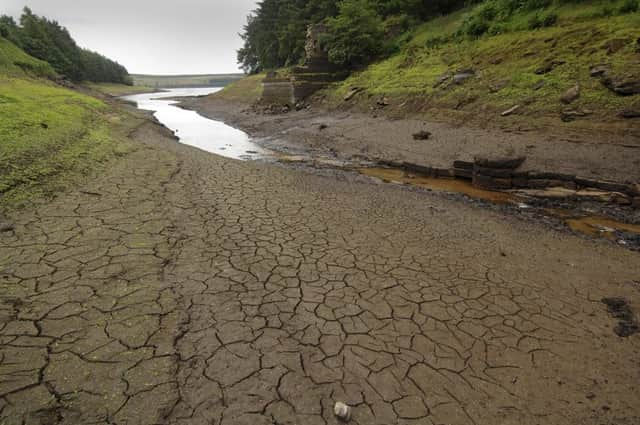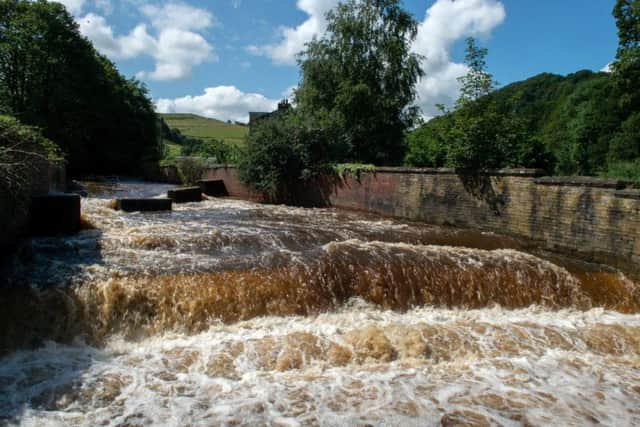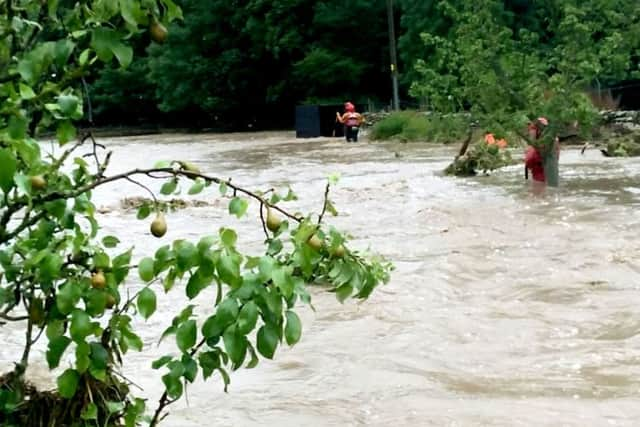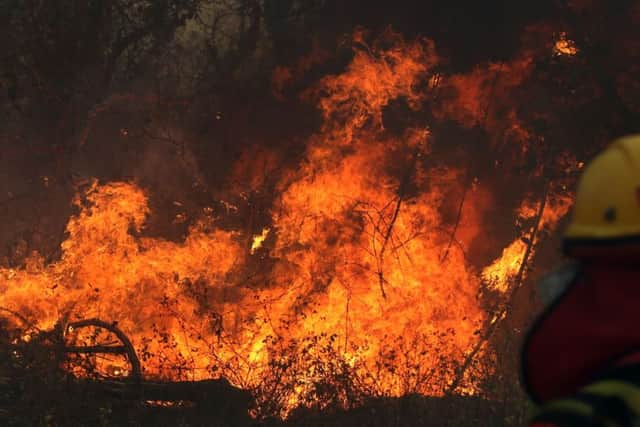Give the North powers to stop Yorkshire water shortages: Jack Hunter


The devastating flooding in Yorkshire and Northumberland, as well as the evacuation of 3,000 people at Whaley Bridge because of the risks of a dam collapsing, is almost certainly just a taster of the impact of climate breakdown in our region.
Climate change will increase the regularity and severity of flooding events, but it will also, somewhat paradoxically, increase pressures on the supply of water in the North as well.
Advertisement
Hide AdAdvertisement
Hide AdIn the IPPR North’s latest report, we find that pressures on the supply and demand of water in the North will become much more acute in the next 25 years. Although none of the three Northern regions face pressures on water of the same magnitude as places in the South and East of England, there is no room for complacency.


Yorkshire and the Humber in particular faces the greatest long-term risk. Without a significant reduction in water use among households and businesses, demand for water could start to outstrip supply by 2035. Climate change is a key driving factor behind the projected decrease in supply over the coming decades.
Faced with multiple potential tipping points that can quickly shift us beyond the point of no return, it is abundantly clear that business as usual is no longer an option. This is an international emergency and requires worldwide action. But in the spirit of ‘think global, act local’, we all have a role to play. And while the Government is deadlocked by Brexit, we need local leaders, including those in the North, to step up.
Discussions about the future of the North as a region are far more commonplace now than they were five years ago. Although the Westminster government’s supposed interest in the Northern Powerhouse agenda has been on a bit of a rollercoaster ride in recent years, there is undeniably a growing momentum behind a pan-regional approach, led by the North itself.
Advertisement
Hide AdAdvertisement
Hide AdThe visionary and exciting #PowerUpTheNorth campaign, which was launched earlier this year by The Yorkshire Post and other newspapers, is emblematic of this.


This month, the North’s leaders, including metro mayors Dan Jarvis and Andy Burnham, will meet for the Convention of the North. The purpose of the event, which is held in Rotherham, will be to discuss “a common agenda for the future of the North”.
There will be a workshop session on ‘clean growth’, and discussions about much-needed transport investment will include consideration of how to make sure any future funding can maximise its potential social and environmental, as well as economic, benefits. This is certainly a step in the right direction, but more radical action is required.
Firstly, the North’s political leaders should collectively recognise the climate emergency. Many councils in the North, including nine Yorkshire authorities, have already declared a ‘climate emergency’. The Convention of the North is an ideal opportunity for the region to speak as one on this issue.
Advertisement
Hide AdAdvertisement
Hide AdSecondly, leaders from across all sectors should work together to put climate action at the heart of considerations about the future of the North. This will require difficult conversations about how to decarbonise the North’s economy in a way that is fair and sustainable, as well as rapid and effective. And any vision for the future of the North must be built upon the fact that we can no longer take our natural environment for granted.


Finally, the North should be lobbying government in Westminster to devolve greater powers over tax and spend to enable radical changes that will enable the North to take the lead in decarbonising its economy and adapting to a world with more unpredictable and extreme weather events.
Overseas, much of the most radical responses to climate change are being developed by cities and regions rather than national governments. We need to give local areas the powers to develop their own solutions to climate breakdown otherwise we risk falling behind. In the face of climate breakdown, business as usual is no longer an option. Faced with paralysis in Westminster, we need the North to step up.
Jack Hunter is a research fellow at IPPR North.